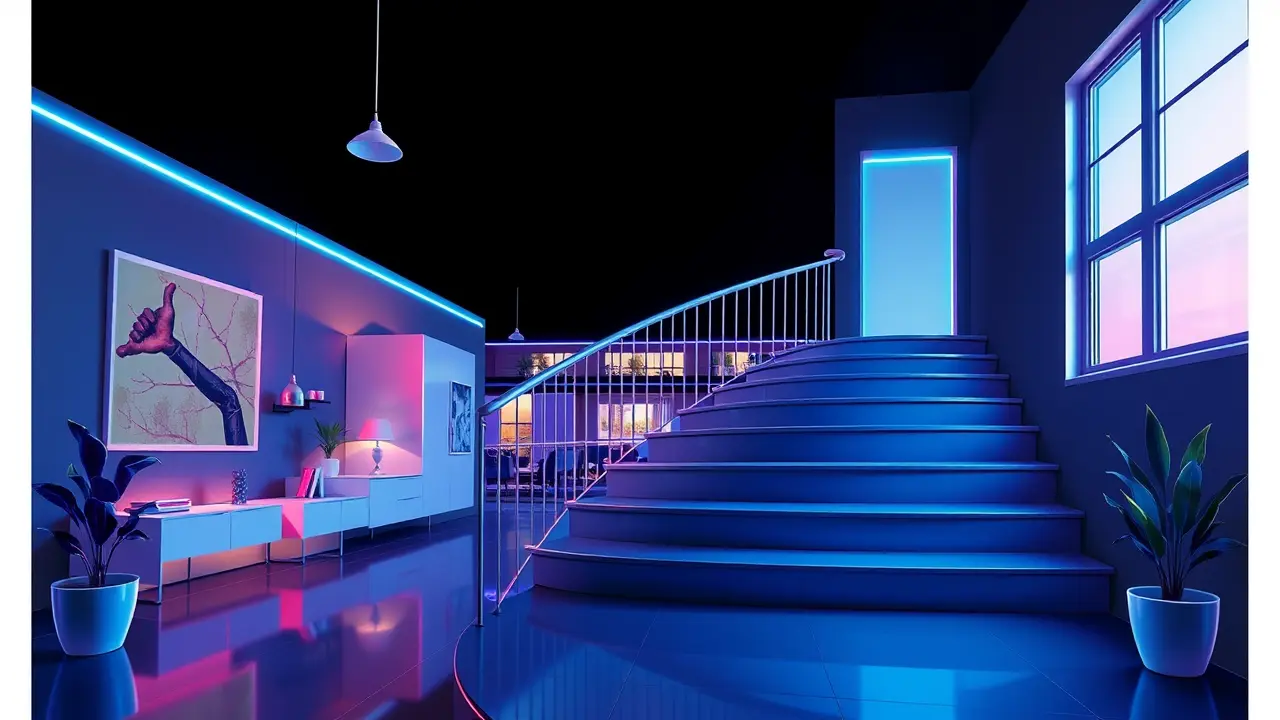
AIai safety & ethicsMisinformation and Deepfakes
Real Estate Is Entering Its AI Slop Era
SO
Sophia King
4 weeks ago7 min read1 comments
The digital frontier of house hunting is undergoing a surreal transformation, morphing from a simple search for a home into a gallery of algorithmic hallucinations where the very notion of reality is being gently, and sometimes comically, dismantled. We’re no longer just browsing listings; we’re stepping into AI-generated dreamscapes where a cramped studio apartment can, with a few clever prompts, digitally expand into a sprawling loft with sun-drenched windows that never existed, where staircases materialize in single-story bungalows leading to phantom second floors, and where video walk-throughs present impeccably staged, perfectly lit interiors that are, in fact, complete fabrications—beautiful, persuasive, and utterly false.This isn't a distant sci-fi scenario; it’s the emerging 'slop era' of real estate, a term borrowed from AI art communities describing the low-effort, often flawed, but proliferating content churned out by generative models, now spilling over into one of life's most significant financial and emotional decisions. As a UX designer who lives at the intersection of creativity and technology, I see this not merely as a new tool but as a fundamental shift in the user experience of trust.The process is seductively simple: a real estate agent or a marketing firm feeds a property's basic photos into an image generator like Midjourney or a video tool like OpenAI's Sora, requesting 'more natural light,' 'a modern kitchen island,' or 'a view of a park,' and the AI obliges, painting over the existing reality with a more marketable fantasy. The result is a kind of architectural uncanny valley—a space that feels almost right, but where the details betray its artificiality.A fireplace might flicker with a flame that never consumes its log, a bookshelf may be filled with spines bearing garbled, nonsensical titles, or the reflection in a mirror might show a room that doesn't match the one you're virtually standing in. These are the digital equivalents of a fresh coat of paint hiding water damage; they are aesthetic enhancements that obscure fundamental truths.The implications are profound, stretching far beyond mere disappointment. For the buyer, it represents a catastrophic breakdown of informed consent.The journey to purchase a home is already fraught with emotion and financial vulnerability; it’s a narrative we build in our minds from the first photo we see. When that foundational image is a lie, the entire narrative collapses, wasting time, energy, and emotional investment on a phantom.It erodes the already fragile trust between buyer and seller, turning the listing into a potential adversarial space. For the industry itself, it’s a ticking time bomb of legal and ethical quandaries.Where does truthful representation end and fraudulent misrepresentation begin when the asset being sold is a digital twin that never existed? Could a buyer sue over a 'stair hallucination' that convinced them a home had a finished attic, only to discover a crawl space? Regulatory bodies, already lagging years behind technological innovation, are utterly unprepared for this new form of property catfishing. Historically, we can look to the early days of online shopping, when grainy, low-resolution photos were the norm and trust was built through customer reviews and return policies.Real estate lacks that immediate recourse; you can't 'return' a house after a costly inspection reveals the virtual granite countertops are, in reality, laminated particle board. The consequences ripple outward, potentially skewing market data as AI-enhanced listings command higher initial interest and perhaps even inflated perceived value, creating a distorted benchmark for comparable sales in a neighborhood.This is the dark side of the creative tools I so often champion. The same technology that allows an indie filmmaker to visualize a scene or a graphic designer to brainstorm concepts is now being weaponized in a high-stakes marketplace.It forces a critical conversation about digital provenance and authentication. Perhaps the next evolution in proptech won't be smarter search algorithms, but verified, blockchain-secured digital ledgers for property media, or watermarking standards that certify an image is unaltered.The industry may need its own version of a 'Truth in Advertising' act specifically for AI-generated content, mandating clear, upfront disclosures. The real estate AI slop era is here, and it’s a stark reminder that every technological leap forward carries the potential for both breathtaking innovation and profound deception. Navigating this new landscape will require a new kind of literacy—one where we learn to question the pixels before us as keenly as we would a foundation crack or a leaky roof, understanding that the most beautiful dream home might just be a beautifully rendered hallucination.
#featured
#AI-generated real estate
#fake video walkthroughs
#property listing fraud
#deepfakes
#AI ethics
#housing market
#technology misuse
Stay Informed. Act Smarter.
Get weekly highlights, major headlines, and expert insights — then put your knowledge to work in our live prediction markets.
Related News
Comments
Loading comments...
© 2025 Outpoll Service LTD. All rights reserved.